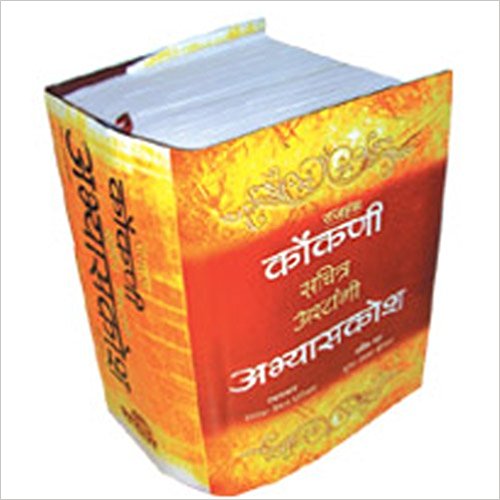You might run across Damodar K.K. Ghanekar cycling in Panjim quite absent-minded and lost deep in thought. Without much ado and spending half-a-dozen years over the task Ghanekar recently put together Konkanis most ambitious dictionary one which spans over two thousand pages! To undertake a task of this scale perhaps one needs to be lost in a world of ones own!
However appearances can be deceptive. Ghanekars visiting card describes him as a Konkani teacher lexicographer encyclopedist journalist and a legal and technical translator.
Recently he shared with the Goa Book Club what went into his most ambitious work of love a Konkani dictionary that heavy and thick vast and impressive.
Augusto Pinto the Goa-based translator book reviewer and educator called this by far the most elaborate Konkani-Konkani dictionary published so far. Although it is in the Devanagari script it does indicate roots of the words in the Roman script when words are derived from Portuguese English and foreign languages. Besides meanings it has an Introduction which describes the development of the Konkani language and also gives word etymologies pronunciation idioms and phrases grammatical issues and other matters.
Rajhauns the Panjim-based publisher with literally hundreds of titles to their credit and quite a few Goa-related books in the past and now more into educational texts study aids say about this book: Thousands of people both Goans and from beyond Goa use Konkani for various purposes in education literature journalism and publishing. This dictionary was created for them to get access to the needed information. It offers meanings of the words. To enhance their knowledge of vocabulary a number of meanings have been given. Not just this in some cases even the opposites have been given. To understand the languages vocabulary without trouble the samanyaroop and kriyapads (verbal nouns) are also offered in quite many cases.

